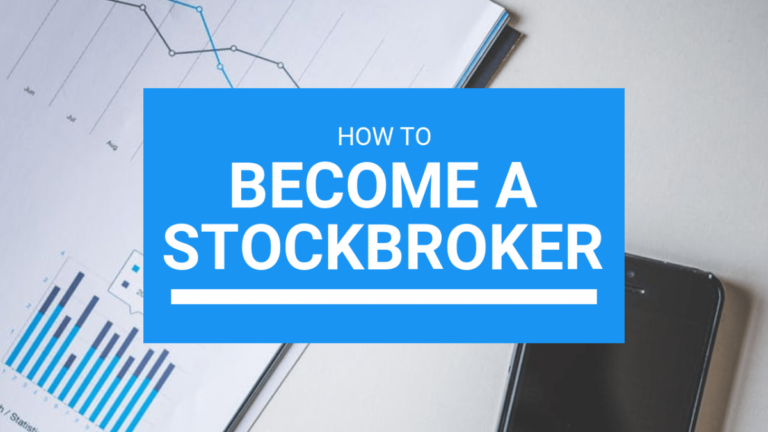How To Become a Stock Broker in the USA: A Comprehensive Guide

Are you dreaming of a career where you can dive into the fast-paced world of the financial markets, make investment decisions, and help others grow their wealth? Becoming a stock broker in the USA could be your ideal path.
Stock brokers play a pivotal role in the financial industry, facilitating the buying and selling securities for individual and institutional clients. But how do you get started?
This guide will walk you through every step, from the necessary education to passing crucial exams and obtaining your license, ensuring you’re well-prepared to embark on a successful career as a stock broker.
What Does a Stock Broker Do?
A stock broker is a licensed financial professional who buys and sells stocks, bonds, and other securities on behalf of clients. They provide advice on investments, manage portfolios, and execute trades.
Stock brokers typically work for brokerage firms, investment banks, or financial institutions, and they must be knowledgeable about the financial markets, investment strategies, and regulatory requirements.
Why Choose a Career as a Stock Broker?
Becoming a stock broker offers numerous benefits, including the potential for high earnings, a dynamic work environment, and the satisfaction of helping clients achieve their financial goals.
It’s a career that demands analytical skills and the ability to build and maintain relationships, making it ideal for those who thrive in a fast-paced, results-driven environment.
Step 1: Obtain the Necessary Education
While there’s no specific educational requirement to become a stock broker, most employers prefer candidates with a bachelor’s degree. Relevant fields of study include:
- Finance: A degree in finance provides a strong foundation in financial markets, investment strategies, and corporate finance.
- Economics: Economics majors gain insight into market dynamics, economic theory, and how economic factors influence investments.
- Business Administration: This degree offers a broad understanding of business operations, management, and financial principles.
- Accounting: Accounting provides in-depth knowledge of financial statements, tax laws, and the fundamentals of financial analysis.
Step 2: Gain Experience in the Financial Industry
Before becoming a licensed stock broker, gaining relevant experience in the financial industry can be invaluable. Many aspiring brokers start in entry-level positions such as:
- Financial Analyst: Working as a financial analyst allows you to develop analytical skills, understand market trends, and make investment recommendations.
- Sales Assistant: Assisting a senior broker helps you learn the ropes of the industry, from client interactions to trade execution.
- Investment Banking Analyst: This role offers exposure to the intricacies of investment banking, including mergers and acquisitions, underwriting, and financial modeling.
Step 3: Pass the Securities Industry Essentials (SIE) Exam
The SIE exam is an entry-level exam administered by FINRA (Financial Industry Regulatory Authority) that tests your knowledge of basic securities industry concepts. It is the first step towards becoming a registered stockbroker.
Key Points About the SIE Exam:
- No Sponsorship Required: Unlike other securities exams, you do not need to be sponsored by a firm to take the SIE exam.
- Exam Content: The SIE covers topics such as the structure of the securities industry, types of products and their risks, regulatory agencies and their functions, and prohibited practices.
- Study Tips: Invest in study materials, take practice exams, and create a study schedule that allows you to review all topics thoroughly.
Step 4: Secure Sponsorship and Pass the Series 7 Exam
After passing the SIE, the next step is to pass the Series 7 exam, which is also known as the General Securities Representative Exam. This is where sponsorship from a FINRA-member firm comes into play.
Sponsorship:
- Find a Firm: To take the Series 7 exam, you must be sponsored by a FINRA-member firm. This usually means securing a position at a brokerage firm, investment bank, or financial institution.
- Form U4: Your employer will file Form U4 with FINRA, which registers you as an employee and initiates the licensing process.
Series 7 Exam:
- Content: The Series 7 exam is comprehensive, covering a wide range of topics, including equities, bonds, options, mutual funds, margin accounts, and securities regulations.
- Exam Format: The exam consists of 125 multiple-choice questions, and you have 225 minutes to complete it. A passing score is 72%.
- Preparation: Given the breadth of material, it’s crucial to follow a rigorous study plan, use practice exams, and focus on understanding complex topics like options trading and regulatory requirements.
Step 5: Pass the Series 63 Exam (State Licensing)
In addition to the Series 7, most states require stock brokers to pass the Series 63 exam, also known as the Uniform Securities Agent State Law Exam. This exam focuses on state securities laws and ethical practices.
Series 63 Exam:
- Content: The exam covers topics such as registration of persons and securities, ethical practices, and fiduciary responsibilities.
- Requirement: Series 63 is required to conduct business and legally solicit clients in most states.
- Preparation: Study guides and practice exams specific to state laws and regulations will help you prepare effectively.
Step 6: Register with FINRA and State Authorities
Once you’ve passed the SIE, Series 7, and Series 63 exams, your sponsoring firm will register you with FINRA and the state securities authorities where you plan to do business.
Registration Process:
- FINRA Registration: Your firm submits your application, including your exam results, personal information, and disclosures (such as criminal or financial issues) to FINRA.
- State Registration: Your firm also registers you with the state securities authorities. This step is essential to conducting securities transactions and legally advising clients in those states.
Step 7: Build a Client Base and Develop Your Career
Now that you’re licensed, the real work begins. Building a successful career as a stockbroker requires dedication, networking, and continuous learning.
Building a Client Base:
- Networking: Attend industry events, join professional associations, and leverage personal connections to build your client base.
- Cold Calling: Many brokers start by cold calling potential clients to introduce their services and set up meetings.
- Client Referrals: As you build trust with your clients, encourage them to refer friends and family.
Career Development:
- Continuing Education: FINRA requires continuing education to keep your knowledge current and maintain your license.
- Advanced Certifications: To enhance your expertise and credibility, consider pursuing additional certifications, such as the Chartered Financial Analyst (CFA) or Certified Financial Planner (CFP) designation.
- Staying Informed: Regularly read financial news, attend webinars, and participate in professional development courses to stay ahead of market trends and regulatory changes.
Conclusion
Becoming a stock broker in the USA is a challenging yet rewarding journey that requires a solid educational foundation, passing multiple exams, and a commitment to continuous learning. By following the steps outlined in this guide—obtaining the necessary education, gaining industry experience, passing the SIE, Series 7, and Series 63 exams, and building a client base—you’ll be well on your way to a successful career in the financial markets. Whether you’re just starting or looking to advance in your career, becoming a stock broker offers an exciting opportunity to help clients achieve their financial goals while navigating the ever-evolving landscape of the securities industry.



